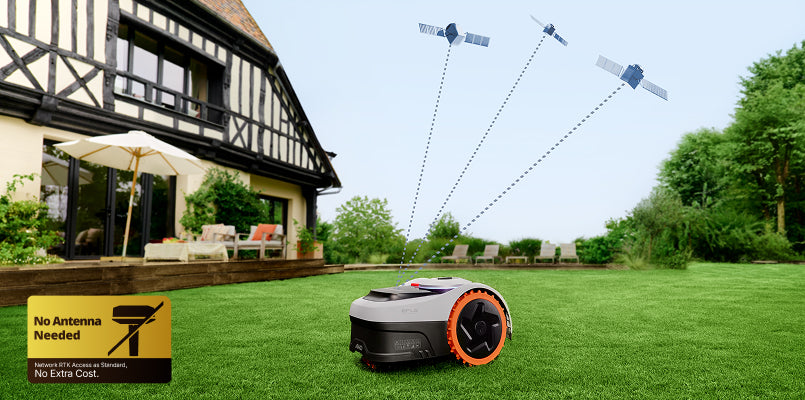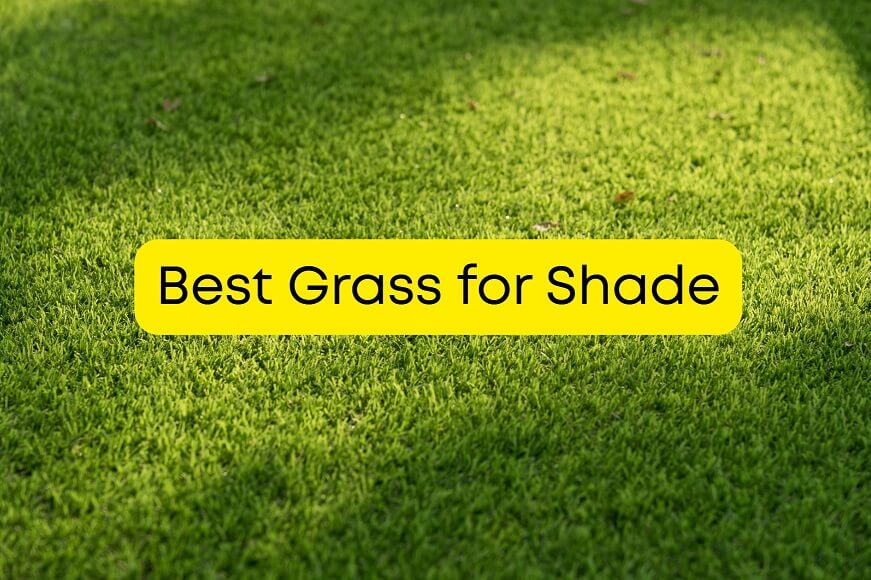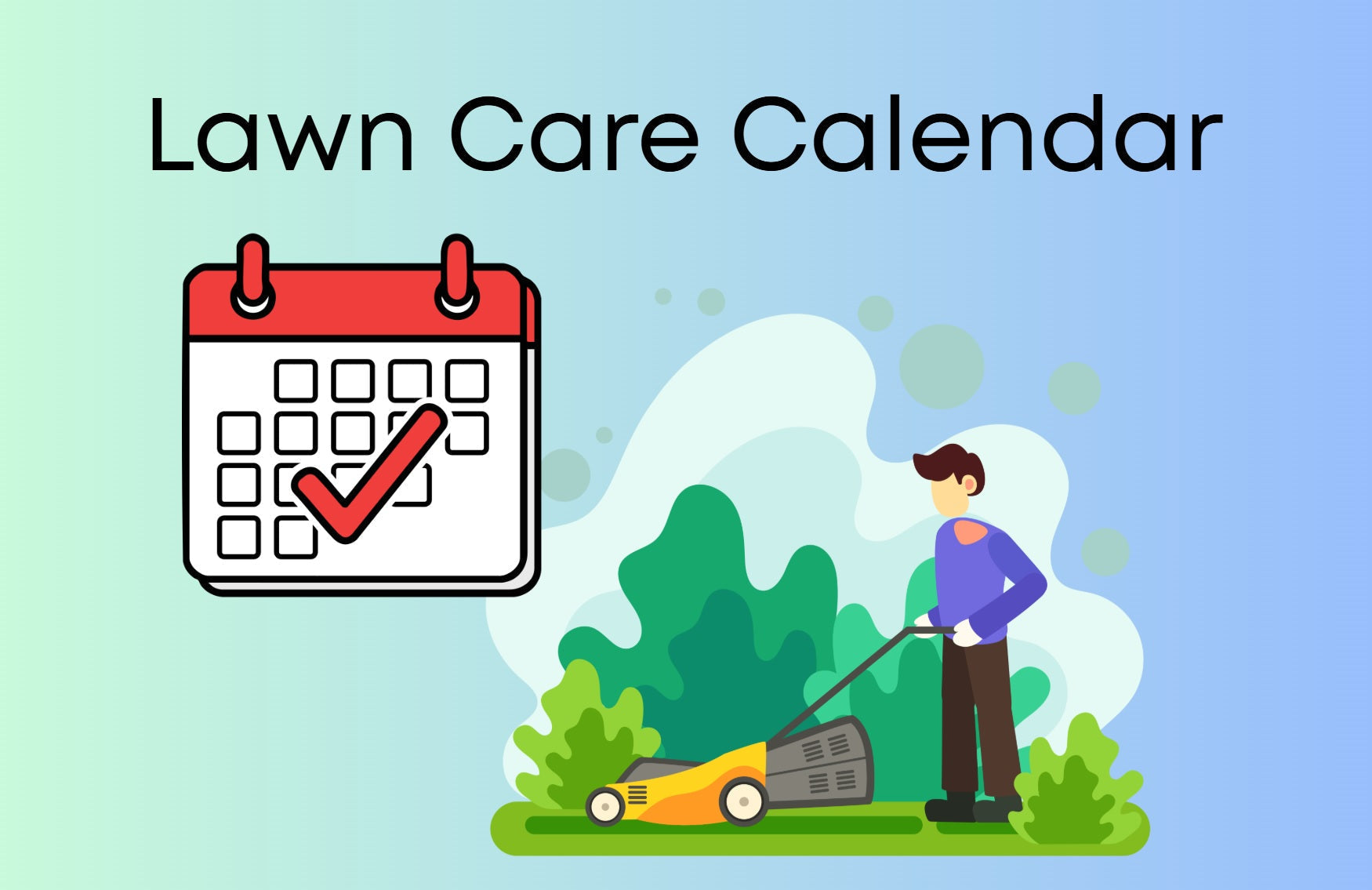Often, owning a lawnmower becomes a headache. Because of frequent maintenance, intense work, loud noise, and equipment failure, lawn owners can’t maintain their lawns.
The struggle is real, and that’s what compels lawn owners to look for a lawnmower alternative.
In this article, we will explore how to cut grass without a lawnmower. Not only will we share different tools and methods, but we will also explain when you can use them and unveil their limitations and pros & cons.
By the end, we will also share a better solution to get rid of a traditional lawnmower and maintain a perfectly cut lawn without any hassle.
Why Do People Look for a Lawnmower Alternative?
People look for a lawnmower alternative for the following primary reasons.
Do Not Have One: It’s an obvious reason. A landowner who doesn’t own a lawnmower or has a faulty one could look for alternative options to maintain the lawn.
Labor Intensive: Manual lawnmowers need a lot of time and effort. They are extremely labor-intensive, which many people hate.
Frequent Maintenance: Lawnmowers require frequent maintenance, which is a headache for most lawn owners. Therefore, they avoid using it and look for a better option.
Noise Reduction: Some people do not like the noise of power lawnmowers. They could disturb other people, especially neighbors.
Equipment Failure: Many lawn owners complain about the equipment failure. It’s difficult to keep a lawnmower and take care of it.
Depending on the reason for looking for a lawnmower alternative, lawn owners can opt for manual tools, power tools, or even animal grazing. Let’s have a look at these alternatives and when to use what.
Using Manual Tools
If you are looking for a non-noise and affordable alternative to mow your lawn, you can go with manual tools. People have been using them for ages, and they require minimal maintenance.
They do not need any gas or electricity; all they need is physical effort. For fitness enthusiasts, it’s definitely a healthy activity.
These tools require strength and time, so if you are fine with that, you can pick any of the following manual tools.
Scythe
A scythe is a popular agricultural tool used to harvest crops, but people also use it to get rid of tall grass.
It’s a long tool that requires two hands for operations. A sharp and curved blade is perpendicularly attached to a long handle.
The user needs to swing the blade with full force perpendicular to the grass. When the sharp blade touches the grass, it slices it perfectly. It covers a wider area as it works in a sweeping motion, which is why it can be used to cut large lawns.
Even though it’s a manual tool, it’s quite efficient. It’s also ergonomic as the user doesn’t need to bend. It can handle tall grass and thick weeds. It is extremely sharp, so it can cut through everything that comes in its way.
It gives a complete body exercise and requires consistent force to sweep the blade. Secondly, users need to practice using it to achieve perfect cuts. Mastering it requires time and technique.
Pro Tip: For an easy cut, cut grass when it is damp. Early morning is a perfect time, as the dew is present on the grass.

Sickle
A sickle is a small tool that can be used for cutting grass. For centuries, people have been using it to harvest crops.
It has a semi-circular blade attached to a wooden handle. Its blade is extremely sharp and often has teeth to slice grass and even thick weeds in one go.
It is used with one hand, and the user needs to squat down to cut the grass. The grass that is to be cut is held with one hand, and the second hand holds the sickle and cuts the selected grass.
It’s a suitable option for small lawns as it needs too much time. However, it is great for hard-to-reach areas as the tool is quite small.
Like a scythe, use a sickle when the grass is a bit wet. And be careful, you might get back ache if you work for too long.
Expert Advice: You can keep both a scythe and a sickle if you want to maintain your lawn with manual tools.

Hand Shears
Hand shears are like large scissors. The traditional shears required two hands to work, but some new innovative tools look like pliers and can be used with one hand.
Users need to bend or squat down to cut the grass. However, you can also get hand shears with a long handle to save your back.
It’s an excellent tool for precise cutting. When you want to cut grass evenly and with exceptional accuracy, you can use hand shears. It can also be used as a lawn edging tool. It can cut grass with minimal effort and offer excellent results.
However, it is impractical to cut a large lawn using hand shears because it’s laborious. It’s only suitable for small patches and edges.

Through Livestock Grazing
If you don’t want to use any tool or make any effort, you can use livestock to get your lawn trimmed. However, it is an extremely slow process, and you can’t control the livestock on what to eat and what not to.
People who already have livestock can do this trick. Getting livestock just for mowing doesn’t make financial sense. Secondly, it’s suitable for a large area and requires proper care of the livestock during and after grazing.
Sheep
Sheep are natural mowers. They prefer to graze your uneven grass and make it short enough that it becomes close to the ground. They only eat the grass blades and leave the roots.
Because of their uniform grazing, the result is excellent. However, you’ll need a large number of sheep to maintain a large lawn. They will also take plenty of time to make the grass shorter.
You also need to arrange standard fending around the lawn to keep them within an area. It is necessary for controlled grazing and keeping the sheep safe.
Note: Before buying sheep, make sure the state allows you to keep them.

Goats
Goats are not as effective as sheep when it comes to grass. They eat grass, but they prefer weed. They are often called weed busters.
If there is minimal or no weed, you can expect them to eat grass. However, they do not offer a neat and uniform cut like sheep.
You also need to pay special attention to manage goats while grazing. Special fencing is required to prevent goats from escaping.
You can keep sheep and goats to mow grass and control weeds at the same time. Both have their special jobs to maintain your lawn.

By Means of Power Tools
For covering a large area other than a lawnmower, you can opt for power tools. They reduce their workload and mow the lawn faster, but do not expect the same results and efficiency as a lawnmower.
String Trimmer
A string trimmer is a versatile tool that every lawn owner should have. It’s also known as Weed Whacker.
You can use a string trimmer to mow your grass. It can quickly mow large areas, saving your time. You can opt for battery-powered, corded, and gas-powered string trimmers, depending on your needs.
A string trimmer has a string attached to a motor. The string rotates at a very fast speed and can help in getting rid of tall grass and weeds.
Keep in mind that it shreds grass blades, which means there won’t be a perfect cut. It works in sweeping motion just like a scythe, but you don’t have to apply force.
You can use string trimmers for small lawns. They can even work in tricky corners and areas where lawnmowers can’t reach.
While using a string trimmer, you need to keep it at a certain height. And if you go too close, it can scalp that part of the lawn.

Brush Cutter
A brush cutter is similar to a string trimmer, but it has a sharp blade that rotates at a high speed. It’s ideal for heavy-duty applications and getting rid of thick and tall grass and weeds. It is perfect for overgrown lawns.
Because of the sharp blade, it can offer a cleaner cut compared to a string trimmer. However, it’s extremely powerful, which is why handling it is a bit difficult. You need to use a shoulder harness to control the vibration, weight, and torque.

Hedge Trimmer
A hedge trimmer isn’t specifically for lawnmowing. It’s a specialized tool for the precise cutting of bushes. However, it can be used for grass, especially thick and tall.
It has very sharp blades that move back and forth and cut everything that comes in between. It works just like a hair trimmer. You get exceptionally clean edges and cuts that beautify your lawn.
It quickly removes thick grass and weed. However, you need to bend or squat down to cut grass and make it shorter. Prolonged use can cause a backache.
For high grass, it works really well and makes the grass manageable with other power tools, like a string trimmer.
You can use it for specific areas in the lawn where lawnmowers can’t reach or you need an extremely precise cut. It’s not a suitable power tool for mowing grass on a large lawn.

Automate Lawnmowing: Use a Robotic Lawnmower
You can mow your lawn without a lawnmower and using any tool or method we have discussed. However, they aren’t specialized for lawn mowing. They have limitations and issues, such as the requirement of specific grass height, uneven cuts, extensive labor in the case of manual tools, etc.
The disadvantages of going without a lawnmower are obvious. And the reasons for not using a lawnmower are also reasonable. But those reasons and issues are connected to a traditional lawnmower. Why not go for a robotic lawnmower instead, which addresses all the issues and makes lawnmowing hassle-free?
How is a robotic lawnmower different from a traditional mower?
Automation: A robotic lawnmower mows your lawn automatically according to the schedule, saving you time and effort. You don’t need to do anything.
Low Noise: They have a much lower noise level compared to traditional lawnmowers. The noise is usually below 60 dB(A), which is why it does not disturb neighbors.
Minimal Maintenance: It requires minimal maintenance and doesn’t fail like a traditional lawnmower.
Control: You can precisely control the height, mowing area, zones, etc. It even cleans edges precisely.
Weather: An advanced robotic lawnmower can check weather conditions and mow when it’s the best time to mow grass.
Thus, a robotic lawnmower does not have the issues you face while using a traditional one. It addresses all issues and allows you to maintain your lawn without any effort or time. It’s just like hiring a gardener who does your job with perfection and never complains.
Navimow i105 is an incredible lawnmower with AI-assistance to mow any terrain with perfection. It automatically avoids obstacles, pets, and mows the selected zone. You just need to set a schedule and it does the rest of the job. Its noise level is 58 dB(A), which is not disturbing. You get every update on the app and have complete remote control.

Now, it’s time to say goodbye to labor intensive work, loud noise, frequent maintenance, and dedicating time for lawnmowing and switching to a robotic lawnmower.
Further reading: Top 10 Lawnmowing Tips for Healthy Lawn
FAQs
How do I cut my grass without a lawnmower?
You can cut your grass without a lawnmower by using a string trimmer, brush trimmer, hedge trimmer, sickle, or scythe. These are some alternatives to a traditional lawnmower.
How to trim a lawn by hand?
Trim using a sickle. Take the sickle in one hand and make sure it’s sharp enough. Grab a bunch of grass blades with your second hand. Now, slice the grass from the bottom using a sickle.
What tool is used to cut grass by hand?
You can use a sickle, scythe, or shears to cut grass by hand. Scythe is more efficient and perfect for large lawns, while sickle and hand shears are suitable for small areas.
More Blog
Bermuda Grass vs. St. Augustine Grass
Planning a new lawn? Thinking about which grass to plant? You might already be weighing up Bermuda and St. Augustine, two of the most common warm-season grasses grown across the southern states. Well, Bermuda and St. Augustine grasses are both...
Best Grass for Shade: Top Varieties for Cool and Warm Climates
For lawns that suffer from the shade of large trees, tall fences, and building shadows, the choice of grasses becomes a bit limited. You can’t go with every grass type because most of them would die due to a lack...
Why is My Grass Turning Yellow? Common Reasons and How to Fix
No one likes to see a yellow lawn patch in their lawn. But it comes uninvited and compels the lawn owner to think about why it happened. Your grass could turn yellow if it is suffering from nutrient deficiency, overwatering,...
When is the Best Time to Plant Grass Seed?
Every lawn owner is eager to get rid of those bald patches and make the lawn lush and green from every corner. But you can’t just grab grass seeds and plant them whenever you want. Beginners often don’t know the...
Summer Lawn Care Tips: Smarter Lawn Care for a Better Season
Summer's finally here. A time when the days are long, the sun is high, and the sweet smell of freshly cut grass hangs languidly in the air. For many of us, a lush, green lawn is the centerpiece of summer,...
Month-by-Month Lawn Care Calendar for the US
Lawns are sensitive, so you have to do everything at the right time, whether mowing, applying fertilizer, or watering. Otherwise, you will end up ruining your lawn while trying to make it healthier. Beginner gardeners and new lawn owners often...







Share: